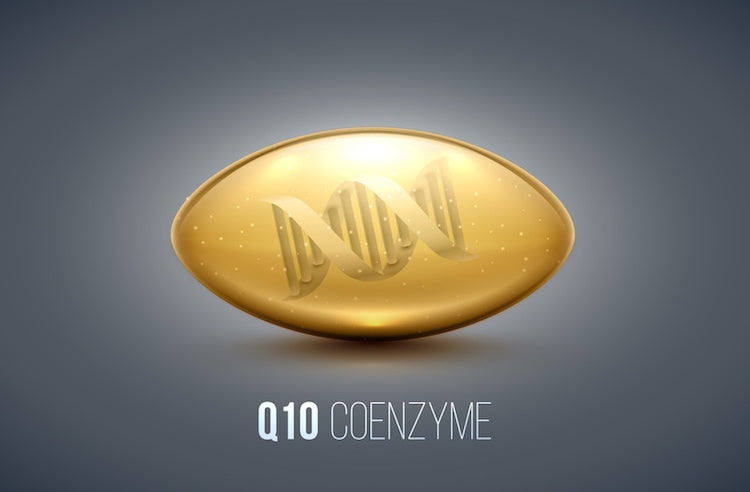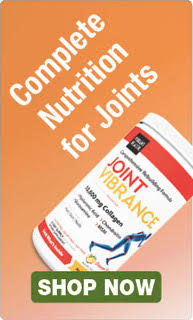Coenzyme Q10 is undoubtedly one of the most popular natural compounds recommended for cardiovascular health.
Although suggested daily dosages for CoQ10 vary, the results of a new Swedish study suggest that 200mg might just be the optimal amount.
In this blog, we’ll outline why the study was important, suggest ways and means of upping your coenzyme Q10 intake and debate the perfect coenzyme Q10 dose.
Let’s get to it.
Coenzyme Q10 and Longevity: The Swedish Study
The study in question was conducted by scientists at Linköping University, one of Sweden’s largest state universities.
443 healthy elderly adults participated in the randomised clinical trial which sought to assess the merits of two supplements: coenzyme Q10 and selenium.
The study group was divided, with some receiving daily supplements of Coenzyme Q10 (200mg) and selenium (200mg) and the rest receiving a placebo.
Both known for their antioxidant properties, coenzyme Q10 and selenium are needed for optimal cell function.
What is interesting is that the volunteers adhered to the supplement regime for four years; and then, as part of what researchers termed a ‘sub-study’, their results were reviewed 12 years after the main trial ended.
In other words, this research was 16 years in the making.
The results of the study were as follows:
• After 12 years, a 40% reduction in cardiovascular mortality was noted in the supplementation group
• In those with ischaemic heart disease, diabetes, hypertension and impaired functional capacity, a significantly reduced CV mortality risk was demonstrated
• The supplemental group exhibited improved cardiac function as evaluated by echocardiography
Although there are many positive studies highlighting the health benefits of dietary supplements, this one was unique in showing that the protective effects endured for a lengthy follow-up period.
The researchers speculated that selenium and coenzyme Q10 supplements “inhibited the pathogenesis of irreversible, presumably structural, changes preceding cardiovascular events.”
In essence, the drivers of disease were given a dramatic reset.
The research team did temper their excitement somewhat by noting that this was a small study and that “observations should be regarded as hypothesis-generating.”
Still, who can fail to be enthused by such incredible results? Four years of diligent natural supplementation would not ordinarily be expected to engender positive effects a dozen years later.
You can read the trial in its entirety here.
One last point to make about this study is that it was not given much coverage in the mainstream media. This is disappointing in a year in which misleading reports were published critiquing both fish oils and probiotics.
What is Coenzyme Q10 and What are the Benefits?
We will come to selenium later, but since coenzyme Q10 is more frequently associated with cardiovascular health – and there are more studies showing its benefits in this regard – we’ll take a closer look.
CoQ10 is a naturally-occurring compound that helps to generate energy in cells.
How does it generate energy, you may wonder. Well, it’s a complex process but in simple terms CoQ10 turns energy we get from food into ATP, the currency cells need to carry out essential functions.
In addition, coenzyme Q10 is one of the most widely appreciated antioxidants, preventing cellular damage caused by free radicals and reducing the burden of oxidative stress.
Since oxidative stress is considered an underlying cause of cancer, as well as other chronic diseases, this should not be underestimated. Oxidative stress occurs when free radicals exceed and overwhelm antioxidants.
Speaking of antioxidants, CoQ10 helps to recycle two others, namely vitamin C and vitamin E, meaning the effect of these nutrients is maximised when coenzyme levels are adequate.
Numerous studies indicate CoQ10’s positive influence on:
• Blood pressure
• Energy levels (including exercise-induced fatigue)
• Insulin sensitivity
• Cognitive health
• Fertility
• Fibromyalgia
• Inflammation
• Heart ailments
• Migraines
• DNA damage
Incidentally, if you’re currently taking statin medication, you should consult our article Coenzyme Q10 and Statins. It covers virtually everything you need to know on this topic.
Where Does CoQ10 Come From?
It is estimated that around 1/4 of the CoQ10 in our blood comes from the diet; the remainder is produced internally.
The primary dietary sources include meat (especially organ meat and grass-fed beef), oily fish and chicken. However, it is notoriously difficult to boost one’s levels from diet alone.
Indeed, dietary CoQ10 sources provide a fraction of what you’re body needs.
As for natural production, this is said to fall as we age. There is no firm consensus on when levels begin to deplete, though the aforementioned Swedish study noted that “endogenous production decreases continually after the age of 20, and endomyocardial production is reduced to half at the age of 80.”
What’s the Optimal Coenzyme Q10 Dosage?
This is a tricky one. After all, there is no Recommended Daily Amount of coenzyme Q10. A great shame since, as stated, GSH declines with age, food sources provide an insufficient amount and the compound is clearly beneficial.
In clinical studies, dosages of anywhere between 80 and 300mg per day have been used. Requirements vary from person to person based on age, health status, medication and so forth.
According to leading cardiologist Dr. Stephen Sinatra, over 40s should shoot for 50-100mg per day; over 60s and/or statin users 100-200mg; and people who have suffered a heart attack 200-300mg.
Those in the 20-40 age bracket might aim to consume 50mg every day or 100mg every other day.
Note that coenzyme Q10 is fat-soluble, and as such relies somewhat on food for absorption; it is best taken with meals containing fat. If you favour a higher dose (200-300mg), divide your intake throughout the day.
While the Swedish study stressed the long-term benefits of ingesting 200mg CoQ10 per day, positive results have been posted for lesser dosages.
For what it’s worth, Dr. Sinatra’s recommendation seems sound – though it might be wise to increase the dosage if you have a particularly high energy output or suffer from stress.
Parkinson’s and diabetic neuropathy are two conditions which may benefit from a higher dosage.
As of today, research has not linked supplemental CoQ10 to serious adverse effects, even with dosages as high as 1200mg per day.
CoQ10 Tablets: An Investment in Health and Longevity?
Could Coenzyme Q10 tablets represent a meaningful investment in health, particularly for over-40s? If the recent Swedish study is anything to go by, absolutely.
Where supplements are concerned, it is important to look for the ‘active’ form of coenzyme Q10, ubiquinol. This is the form the body produces naturally.
According to a 2014 study published in the Journal of Agricultural and Food Chemistry, “the enhanced bioaccessibility and bioavailability of ubiquinol compared to ubiquinone results from reduced coenzyme being more efficiently incorporated into mixed micelles during digestion and its greater uptake and basolateral secretion in a glutathione-dependent mechanism.”
Because it is absorbed more readily by the body, ubiquinol supplements tend to be more expensive than their ubiquinone counterparts.
If you are keen to try CoQ10, don’t be tempted by low-grade supplements: not only do they contain the lesser form of CoQ10, but they might not provide an accurate dosage.
In independent analysis by Labdoor, tested supplements ranged from having only 64.7% of their label claim for CoQ10 to exceeding their label claims by 8.3%.
As with any supplement, a trusted supplier is crucial.
WHC is a company renowned for the purity of their products. The Belgian company currently manufacture the independently validated #1 omega-3 fish oil, UnoCardio 1000; they also produce the #3 ranked fish oil, UnoCardio X2. Both are available exclusively from our store.
QuattroCardio is WHC’s synergistic supplement for cardiac health. It combines omega-3 fatty acids of exceptional purity, vitamin K2, vitamin D3 and coenzyme Q10, the latter in the preferred ubiquinol form. 100mg of coenzyme Q10 as ubiquinol is provided per serving.
Please note that CoQ10 supplements can decrease the anticoagulant effects of blood thinning drugs such as warfarin.
If you are using such medication, consult your doctor before use.
What About Selenium?
Lest we forget, the Swedish study provided such great results at least in part due to selenium, which was taken at an identical daily dosage (200mg).
An essential trace mineral, selenium plays a role in many biochemical processes and there is evidence to suggest strong protective effects against thyroid problems, asthma, even cancers of the prostate and lung.
What’s more, selenium helps reduce inflammation, specifically by preventing the oxidative modification of fats in the body; and the mineral has a beneficial effect on skeletal and cardiac muscle metabolism.
Unfortunately, selenium levels have been in steady decline since the EU imposed levies on imports from the United States, where soil selenium levels are famously high.
Average intake is said to have fallen from around 60mcg per day to 34, considerably lower than the EU Recommended Daily Intake of 65mcg.
Nonetheless, dietary sources include Brazil nuts, brown rice, tuna, eggs and bread. Supplements are probably most beneficial in individuals with low blood levels, as in the Swedish clinical trial.
One food supplement you may want to look at is Cardio Renu. Formulated by doctors and loaded with valuable nutrients from vegetables, fruits and botanicals, it’s one of very few food supplements to contain coenzyme Q10.
Though it doesn’t boast any specific selenium figures, there will be some due to the multitude of plant ingredients.
Conclusion
As demonstrated, there is merit in supplementing with coenzyme Q10 and selenium – particularly if you have low levels of these important nutrients.
Several chain laboratories offer tests which measure both CoQ10 and selenium levels in the blood.
The same labs can also test for deficiencies of vitamins, amino acids and omega-3s (though you can find out your fatty acid status using a simple at-home omega-3 test kit).
Incidentally, if you’re interested in heart-healthy nutrition, our blog about the best vitamins and minerals for heart and circulation is well worth your attention.
Water for Health Ltd began trading in 2007 with the goal of positively affecting the lives of many. We still retain that mission because we believe that proper hydration and nutrition can make a massive difference to people’s health and quality of life. Click here to find out more.




























Leave a comment